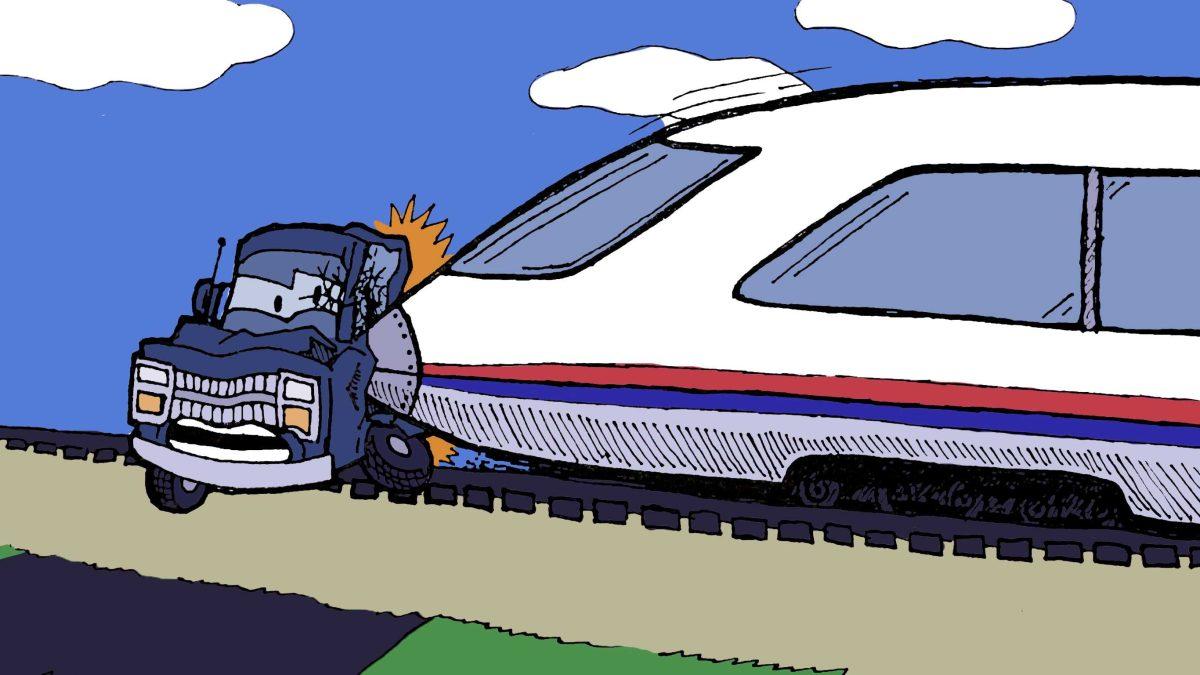You’re waiting for a train to go back home, but you see a pretty lady drop a book on the other side of the train tracks. Naturally, if you’re a kind-hearted gentleman, you run to the other side, pick up the book and give it to the girl. She’s boarded the train already, so you need to dash to get on. You’re out of breath, but you’ve found her. You hand the book to her, and you start to fall in love.
Otto Anderson (from “A Man Called Otto”) was lucky enough to find his soulmate at the train station.
Unfortunately, that’ll never happen here in the United States. We live in the age of the automobile and the interstate system. When I enter my car, I turn into a beast with uncontrollable road rage. Unlike young Otto, I am without a soulmate and filled with fury.
Those who decide to zig-zag lanes while going 15 mph over the speed limit or those who decide to go on their phones while swerving across the highway will receive the brunt of my unadulterated, obscene yelling.
What I value most about trains are the random encounters that are non-existent while driving a car. You can’t exactly meet friendly people while on a solo trip in your car.
On trains, you can feel and experience the humanity of everyone. You’ll see the working man with his shoulders slumped, exhausted from a tiring day. Perhaps you’ll see a group of young college students excited to go to a concert or a grandma and her grandchild making a grocery run in the early evening.
You can strike up a friendly conversation with all of these people while on a train. Even as an introvert, I found it relatively easy to start conversating with the fellow train traveler next to me.
The discussion topics could be bland, like how their day went or how they feel about the weather. But if you’re a crazy lover of politics, like me, you’d ask them their opinion on the war in Ukraine or, since I was in a German train, their opinion on how Chancellor Olaf Scholz was handling the cost-of-living crisis.
I admit that I might be glorifying trains a bit too much. My experience with them only consists of a short spring break trip to Europe. Not every encounter you have on public transportation will go well.
I certainly don’t like the inconvenient delays of trains nor the annoying phenomenon of “stranger danger.” But it sure beats getting in a car crash, going through the lengthy paperwork with insurance to get your car fixed and, of course, potentially dying (you’re 17 times more likely to die while riding a car over an Amtrak train.)
Having a passenger network all across our state would be convenient for everybody. Last summer, I was lucky enough to do historical research at LSU. The only problem was that I had to drive four hours to Baton Rouge and back from my hometown of Alexandria, with my day starting at 6 a.m. and ending at 8 p.m.
Driving 12 hours weekly for three months (along with working the rest of the day) took a toll on my physical health. If there was a passenger train between Alexandria and Baton Rouge, I would’ve taken that option in a heartbeat.
And on game days, it’d be great if those coming from all around the state could do so by train. It’s inconvenient going to Tiger Stadium by car, and it’s a nightmare getting out.
Reducing traffic congestion by building a train network may be expensive initially, but it would be a great investment in the long term. Not only can people from around the state visit Baton Rouge, but folks from Baton Rouge and LSU could also regularly travel to other parts of the state whether for research or for fun.
Most importantly, imagine drinking to your heart’s content, not having to worry about choosing a designated driver among your friends and not paying for an expensive Uber after going out.
I think every college student would want that experience.
Whether you’re looking for a potential soulmate or just a convenient way to get home, the train is for you. But since a train-dominated America is not on the table any time soon, I hope that y’all think of what could’ve been if our politicians cared about sustainable infrastructure earlier in our nation’s history when buckling up in the car.
Nathaniel Dela Peña is a 21-year-old political science and history senior from Alexandria.





